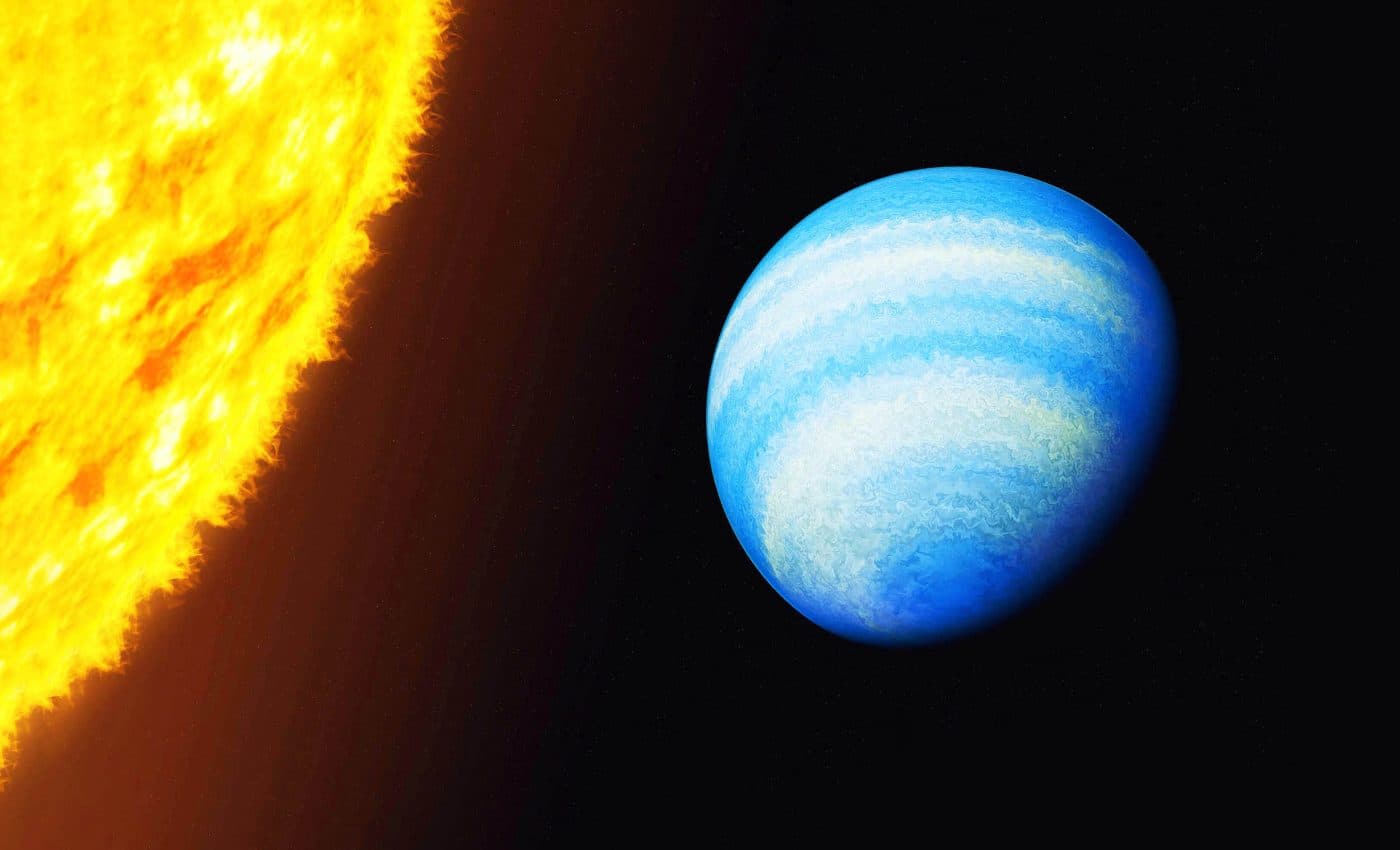Have you ever wondered about what a gas giant might smell like? HD 189733 b is considered as a nearby exoplanet that stinks like rotten eggs. This intriguing scent comes from hydrogen sulfide, a gas known for its foul odor. The discovery of this gas on HD 189733 b, a Jupiter-sized exoplanet, has scientists wondered with excitement.

HD 189733 b orbits a star relatively close to us, making it a good subject for study. According to research from Johns Hopkins University, this planet is rich in hydrogen sulfide.
The lead researcher and an astrophysicist at Johns Hopkins Dr. Guangwei Fu shared his thoughts: “Hydrogen sulfide is a major molecule we predicted but hadn’t confirmed outside our solar system. It is a stepping stone to understanding more about different types of planets and their formation.”
Located just 64 light-years away, HD 189733 b is practically in our cosmic backyard. It is the closest “hot Jupiter” we can observe transiting its star, with a rapid two-Earth-day orbit. This proximity makes HD 189733 b an ideal candidate for studying exoplanetary atmospheres. Such research could revolutionize our understanding of atmospheric dynamics in distant worlds.
Discovered in 2005, HD 189733 b earned the nickname ‘hot Jupiter’ due to its similar chemical makeup to Jupiter but much higher temperatures. Its weather conditions are equally shocking, with winds powerful enough to sweep glass-like silicate particles sideways, creating a truly alien meteorological event.
“HD 189733 b is not only a gas giant but also a ‘giant’ in exoplanet studies as one of the first transiting exoplanets ever discovered,” Fu noted. These high-speed winds, reaching up to 5,000 miles per hour, cause the glass rain to lash horizontally, making the weather on HD 189733 b hazardous and spectacular.
This unique scenario highlights the diversity of exoplanetary climates and the violent nature of some celestial bodies. Understanding these extreme weather patterns provides invaluable insights into the complex interactions between planets and their stellar environments.



